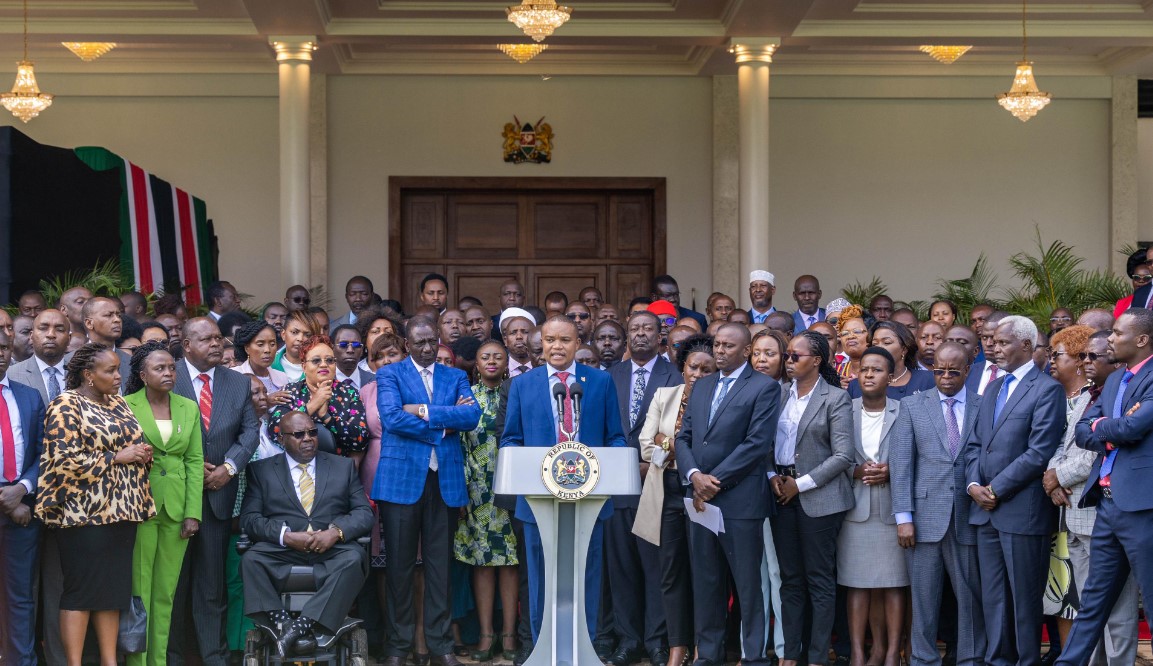Kenya Kwanza Parliamentary Group is set to vote for the Finance Bill 2024 when tabled in the National Assembly later this week.
This follows the meeting at State House Nairobi on Tuesday, where Finance Committee Chairman Kimani Kuria discussed the changes to the Finance Bill 2024 with the ruling party's members of parliament and senators.
President William Ruto said the changes to the Finance Bill were made with the people's and other stakeholders' views considered during public participation sessions.
During the meeting, Ruto commended Kenyans for their contributions through public participation.
“We are going to end up with a product in Parliament that came from the Executive and has been interrogated by the Legislature. Through public participation, the people of Kenya have had a say.”
Did you read this?
The Finance Bill has been amended to remove the proposed 16 percent VAT on bread, sugar transportation, financial services, foreign exchange transactions, and the 2.5 percent Motor Vehicle Tax.
Mobile money transfer fees will not increase, and the Excise Duty on vegetable oil has also been removed.
Levies on the Housing Fund and the proposed one on Social Health Insurance will not attract income tax, putting much more money in employees' pockets.
The proposed Eco Levy will only be imposed on imported finished products that contribute to e-waste and thus harm the environment when they are no longer in use.
Consequently, Iocally manufactured products, including sanitary towels, diapers, phones, computers, tyres, and motorcycles will not attract the Eco Levy.
The President said the government is making efforts to curb the importation of products that can be locally produced, thus protecting local manufacturing and securing jobs for the people.
“The stability you see in the foreign exchange regime is a result of our deliberate policies to reduce imports of things that are produced locally,” the President said.
He said the Eco Levy will be imposed on imported finished products, while those locally manufactured are exempted.
Consequently, locally manufactured products, including sanitary towels, diapers, phones, computers, tyres, and motorcycles, will not attract the Eco Levy.









